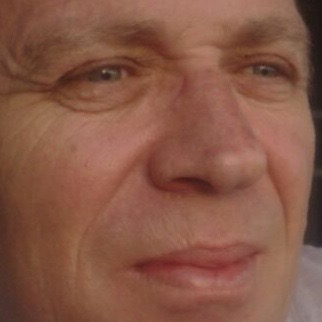News
Obituary: Khaled al-Hariri
Sunday 31 May 2015

Khaled al-Hariri (photo), a veteran Syrian news photographer who died from lung cancer at the age of 54 on 22 May, produced a momentous and insightful archive on his homeland while working for Reuters from Damascus for almost a quarter of a century.
His photos were indispensable to international media coverage of Syria, especially since the authorities banned reporting without regime minders after non-violent demonstrations broke out against the rule of President Bashar al-Assad in March 2011. The government sent tanks to crush the protests and the country subsequently plunged into civil war.
One of his proudest photos was an interview profile in 2007 of Riad al-Turk, Syria's most prominent dissident who spent almost 18 years as a political prisoner in solitary confinement in a two cubic metre underground dungeon. In the interview, Turk warned that unless Assad led Syria on the path to democracy he would face mass revolt.
During the 2000 funeral of Hafez al-Assad, father of the current president, Khaled took a rare picture of Bashar next to his brother Maher, head of the Fourth Army Division, and their brother-in-law Assef Shawkat, head of military intelligence. They were the three most powerful men in the country at that time but there were only a handful of known pictures of Shawkat or Maher. His photo of the three in suits and dark sunglasses was widely used 12 years later when Shawkat was assassinated.
He was arrested for six days by the Palestine branch of Syrian military intelligence for taking the first photos of unrest in the southern city of Deraa, birthplace of the revolt, as well as for helping to report the uprising and killing of peaceful protesters.
This did not stop him from campaigning to retrieve the body of Mossab Odaallah, a Syrian journalist who used a pseudonym to write online reports about the crackdown in Deraa. The army summarily executed Odaallah at his house in Damascus in August 2012. Troops cordoned off the district, leaving the body to rot. "You killed him. What more do you want?" Khaled asked one Assad regime official. Eventually, the authorities relented.
Known as Abu Omar to his friends, Khaled was instantly recognisable in his maroon 1970s Buick Regal, the same model driven by Telly Savalas in the detective series Kojak. In Fardos street in Damascus, where the Reuters bureau was situated, self-appointed street parking attendants always gave Khaled the best spot close to the bureau because they liked the car and because Khaled was from their home region in the Golan Heights.
Affable and kind, Khaled was steeped in knowledge and understanding of the history and society of Syria and the rest of the Middle East. He liked to cook akkoub, a Syrian delicacy related to the sunflower family that grows wild and is challenging to clean because of its thorns.
In April, as Khaled fell into a coma, the akkoub season passed. Doctors and friends had been amazed at how nonchalantly he bore the pain of his illness and the side effects of chemotherapy and radiation.
The funeral took place in the city of Qunaitera near the Golan frontier, a battlefront in the civil war. The government and the rebels agreed to a one-day truce to allow for the funeral and burial in his hometown of Khan Arnabeh nearby.
Khaled leaves behind his wife Hind, his son Omar and his daughter Batoul. ■
- « Previous
- Next »
- 950 of 2177